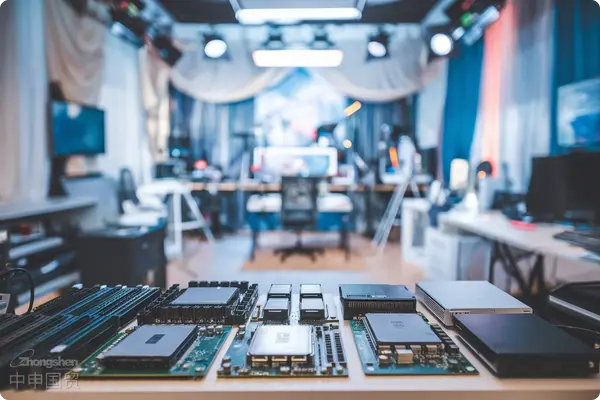- Shanghai Zhongshen International Trade Co., Ltd. - Two decades of trade agency expertise.
- Service Hotline: 139 1787 2118
With the rapid development of information technology, computers and related products have penetrated every aspect of our lives, from home entertainment to industrial production, becoming almost omnipresent. This trend has not only driven the prosperity of the global computer market but also created significant export opportunities forforeign tradebusinesses. However, exporting computer products is no easy task, involving not only accurate customs code classification but also strict compliance with environmental and safety standards in various countries. Have you ever faced customs delays or compliance issues due to unfamiliarity with export requirements? Dont worry! This article will provide a detailed analysis of the relevant requirements and considerations for exporting computer-related products, helping you mitigate risks and ensure smooth business operations!

I. Types of Computer-Related Products and Customs Code Classification
According to the latest customs code directory, the classification of computers and related accessories primarily depends on their function and purpose. Below are the classification descriptions for several common computer products:
Motherboards without CPU
- HS code: 8473.30.90
- Classification Basis:
- Heading 8473: Parts and accessories solely or principally used with machines of headings 8469 to 8472.
- Classification Reasons: Motherboards without CPU cannot independently perform data processing functions and are specialized parts of computers, classified under subheading 8473.30.
Memory Modules
- HS code: 8473.30
- Classification Basis:
- Heading 8473: Parts and accessories solely or principally used with machines of heading 8471.
- Classification Reasons: As a primary storage component of computers, memory modules cannot independently perform data processing functions and are therefore classified under subheading 8473.30.
Network Interface Cards (NIC)
- HS code: 8517.62
- Classification Basis:
- Heading 8517: Transmission or reception apparatus for voice, images, or other data over wired or wireless networks.
- Classification Reasons: Network interface cards are used for data communication and fall under telecommunications equipment, aligning with the description of heading 8517.
Monitors
- HS code: 8528.52.12
- Classification Basis:
- Heading 8528: Monitors and projectors without television reception capabilities.
- Classification Reasons: Monitors are used to display images output by computers, fitting the definition of video display devices.
Central Processing Units (CPU)
- HS code: 8542.31.19
- Classification Basis:
- Heading 8542: Integrated circuits.
- Classification Reasons: CPUs, as electronic integrated circuits, perform data processing functions and align with the description of integrated circuits under heading 8542.
II. Declaration Elements and Considerations for Exporting Computer-Related Products
In the export process of computer-related products, accurate declarations and compliant operations are prerequisites for smooth customs clearance. Below are the declaration elements and specific considerations businesses need to pay attention to during export:
---
- Product name: Such as motherboards without CPUs, memory modules, network interface cards, etc.
- Brand type: Such as independent brand, joint venture brand, imported brand, etc.
- Export Preferential Treatment Situation: Whether to enjoyExport Drawbackor tariff preferences.
- Purpose: Specify the equipments intended use, such as for computer data processing or for computer network connectivity.,
- FunctionProvide a detailed description of the products functions and working principles.
- Brand(Chinese or foreign name): Provide the brand information of the equipment.
- ModelFill in the specific model of the equipment.
- Other InformationInclude the technical parameters and materials of the equipment.
Regulatory requirements
- Environmental complianceComputer product exports involve environmental requirements, with some countries imposing strict regulations on the environmental performance of electronic products. Enterprises must ensure that exported equipment complies with the environmental standards of the destination country, such as restrictions on hazardous substances (e.g., the EUs ROHS Directive).
- Certification RequirementsSome countries or regions require imported computer equipment to have relevant certifications, such as CE certification (EU market), FCC certification (US market), etc., to ensure the safety and environmental compliance of the equipment during use.
Customs declaration and clearance
- Export invoices, packing lists,It is recommended to verify through the following methods:certificates, quality certificates, etc. are essential documents for exporting watches. Enterprises need to ensure the accuracy and integrity of these documents to smoothly pass the customs clearance process at the destination.Documents such as these are essential for the export of computer products. Enterprises must ensure the accuracy and completeness of these documents.
- Technical DocumentationInclude the equipments operation manual, technical specifications, etc., to provide detailed operational guidance for customers in the destination country, facilitating customs clearance and subsequent use.

III. Market Access Requirements and Compliance in Various Countries
Market access requirements for computer products vary across countries, particularly in terms of environmental protection, energy efficiency, and equipment safety. Regulations differ by country, and enterprises should thoroughly understand the requirements of the target market before exporting.
EU Market
- CE CertificationThe EU requires CE certification for computer products to ensure compliance with health, safety, and environmental standards in the European market.
- Environmental protection requirementsCompliance with EU environmental regulations, such as the ROHS Directive, is necessary to control the use of hazardous substances.
US Market
- FCC certificationIn the US market, computer equipment typically requires FCC certification to ensure that electromagnetic emissions meet safety standards and do not interfere with the normal operation of other electronic devices.
Emerging Markets
- For emerging markets such as Southeast Asia and Latin America, in addition to basic safety certifications, enterprises must also pay attention to the destination countrys regulations on equipment performance and environmental requirements, particularly in energy efficiency and electronic waste recycling, as some countries may have specific laws.
IV. Other Considerations for Exporting Computer-Related Products
Ensure Compliance and Environmental Protection
Before exporting computer products, enterprises must ensure that the equipment meets all regulatory requirements of the destination country, especially in environmental protection and energy efficiency. Some countries impose strict environmental performance standards on electronic devices, such as restrictions on hazardous substances and higher energy efficiency ratings. Enterprises must ensure compliance to avoid customs clearance issues due to environmental concerns.
Prepare Product Certifications in Advance
For computer equipment requiring product certification, enterprises should contact certification bodies in advance to complete the necessary certifications, such as CE or FCC, and ensure all certification documents are in order. Preparing certifications early can prevent export delays due to non-compliance.
3. Export RepresentationThe Role of the Company
In the process of exporting computer products, partnering with an experienced export agency can significantly reduce risks and uncertainties. Such agencies can assist with preparing export documents, obtaining product certifications, coordinating logistics and customs clearance, and ensuring a smoother and more efficient export process. For first-time exporters, agencies can provide professional consulting services to help navigate complex regulations and market requirements in different countries.
Summary
Through this detailed introduction, have you gained a deeper understanding of the export requirements and declaration considerations for computer-related products? Whether its motherboards, memory modules, network cards, monitors, or CPUs, accurate HS code classification, compliant declaration processes, and adherence to environmental regulations are key to ensuring smooth exports. If you encounter any issues during actual operations, feel free to contact us anytime.ZhongShen International TradeCan imported equipment be tax - rebated? Avoid common misunderstandings and risks
Related Recommendations
? 2025. All Rights Reserved. Shanghai ICP No. 2023007705-2  PSB Record: Shanghai No.31011502009912
PSB Record: Shanghai No.31011502009912










